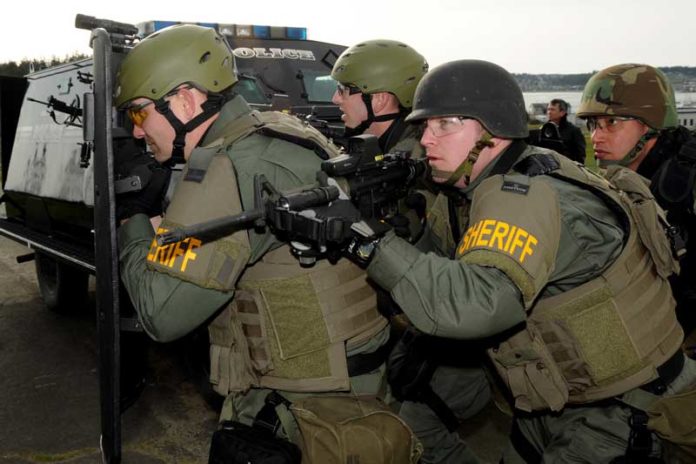There is an old saying in Washington, D.C. – a few billion here and a few billion there and pretty soon you’re talking about a whole lot of money.
The same can be said for low-key efforts underway right now across the nation by state and federal governments to seize legally owned firearms from law-abiding people and rush them to destruction while slow moving legal actions and seizure appeals playout.
No one knows how many lawfully obtained and owned firearms have gone missing from private hands but the loss of even one should send shivers down the spines of Second Amendment activists and gun owners because once gun confiscations begin, they are hard to stop.
So says Michael Roberts who was ordered to surrender 21 firearms – family heirlooms – that the Torrance Police Department seized in 2010. The seizure occurred after his doctor filed a restraining order against him following a dispute that Roberts had with a member of the doctor’s staff. Roberts did not contest in the case and the matter was dropped.
Once the case was resolved, Roberts filed paperwork with the towns Law Enforcement Gun Release program on four separate occasions… obtained clearance from the California Department of Justice… and produced two court orders commanding the return of his guns – but the Torrance Police Department would not to comply.
With the backing of the National Rifle Association and California Rifle and Pistol Association, Roberts filed a federal lawsuit in May 2014 over the $15,500 worth of firearms seized by police. In the end, he got the money but not the guns. The police had his irreplaceable collection of family heirloom firearms destroyed.
Second Amendment lawyers say the problem is not rare and it is growing. According to Attorney Chuck Michel who represented Roberts in the case:
“NRA and CRPA constantly get calls from law-abiding people having problems getting their guns back…”
“The state Department of Justice wrongly tells police not to give guns back unless the person can document ownership of the gun and it is registered in the state DOJ’s database. But the law doesn’t require this.”
Michel added that gun owners often can’t comply with these requirements because police themselves routinely fail to enter the firearms into the DOJ’s database and most people don’t have receipts for the guns they own. Alan Gottlieb, founder of the Second Amendment Foundation, says that:
“This kind of below-the-radar bureaucratic gun confiscation is a growing Second Amendment and property rights violation problem, particularly in strict gun control states like California, New Jersey and Massachusetts,”…“People can’t afford to spend tens of thousands of dollars on legal fees to get back a $500 firearm.”
Two buttress his point; Gottlieb shared his most recent case involving Rick Bailey, a 56-year-old Navy veteran from Glendale, Arizona. Bailey had his entire collection of 28 firearms valued at $25,000 seized by police because of an unrelated ongoing dispute with a neighbor.
After Bailey complained to the city that his neighbor parked his landscaping company’s dump trucks in front home, the neighbor filed a harassment order against Bailey. That gave police the reason they needed to show up and seize his gun collection. Gottlieb said:
“Mr. Bailey is devastated by this situation. We seem to live in an environment when someone’s life can be turned upside down on an allegation that should have been thoroughly investigated before any action was ordered by a court.” …“We’re helping Bailey in his appeal of the judge’s order so he can not only reclaim his valuable firearms, but also some of his dignity as well.”
Gottlieb listed a number of other incidents across the country that tells the story of illegal gun confiscations by authorities including:
- Louisiana where then New Orleans Mayor Ray Nagen ordered gun confiscations citywide following Hurricane Katrina that devastated the city in 2005,
- Massachusetts where residents who had their guns taken because of restraining orders or other reasons and must pay thousands of dollars in storage fees to private companies until their legal issues are resolved regardless of guilt,
- Kentucky where a law passed in 2014 allows police to take firearms from those accused – not convicted – of domestic violence crimes, And;
- Ohio where in August 2011, police seized 13 firearms valued at $15,000 from U.S. Army veteran Francesca Rice while she wasn’t home. The seizure resulted from a “situation involving Rice’s absence from a VA hospital where she had been receiving treatment.” No charges were filed and despite repeated requests, her firearms were never returned.






























